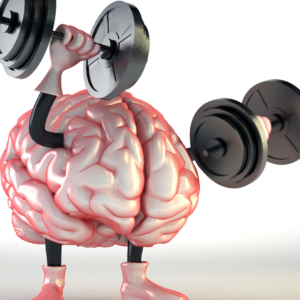
In this article, Dr. Williams shares the benefits of exercise on improved cognitive function.
Article Links: All types of regular physical activity help keep the brain young
Everyday physical activity offers a boost in short-term brain processing speed, according to the findings of a new study from researchers at Penn State College of Medicine.
The study found that common day-to-day activities, regardless of intensity, can provide a short-term improvement in mental reaction time similar to reducing one’s cognitive age by four years.
Previous research has established the value of moderate-to-vigorous physical activity for maintaining cognitive health — and for good health in general.
This study — published in Annals of Behavioral Medicine — uniquely investigates the potential benefit of activities in which people commonly engage during the course of their day, both at work and at home.
One of the study’s strong points was that it collected participant data almost in real time. For 7 days, participants were surveyed five times a day in an app on their mobile phones regarding their physical activity since their last questioning. At each survey, they also took part in two sets of brain games within the app.
The first game was a symbol-search task in which they were asked to tap a symbol at the bottom of their screen that matched the one displayed at the top. After twelve rounds, their average response time was recorded in the app. In the second game, they were asked to recall the location of three dots in a five-by-five grid a few moments after they had been temporarily replaced by a grid of “e”s and “f”s. They played four rounds of the game, with the app scoring their accuracy and calculating their average score.
The researchers saw no improvement in scores for this game that tested working memory after physical activity, although participants did respond more quickly, however inaccurately.
Some jobs involve plenty of physical activity during work hours. Hakun recalled “a friend who works for UPS, and whenever we did those Fitbit competitions years ago he would get 25,000 steps without even thinking about it.”
Vernon Williams, MD, a sports neurologist and founding director of the Center for Sports Neurology and Pain Medicine at Cedars-Sinai Kerlan-Jobe Institute in Los Angeles, who was not involved in the study, told MNT that the research “is interesting in that it suggests that there is at least a short-term benefit from everyday activity, not just moderate or high intensity ‘exercise.’”
“It underscores our belief that movement — any movement — is generally a good thing,” added Williams. 
“We’ve known that multiple previously published work, and the overall impression has been, that exercise has a positive effect on cognitive function, including processing speed,” Williams explained for MNT.
As to why that may be, he noted that:
“With higher-intensity exercise, and longer duration exercise, there are benefits thought to be related to the release of certain chemicals, neurotransmitters, and factors in the brain that are good for cognitive health. There’s also the concept that physical exercise and activity are associated with improved cardiovascular function, improved blood flow, reduced blood pressure, etc. — all associated with improved cognitive function.”
Read the full article here.






